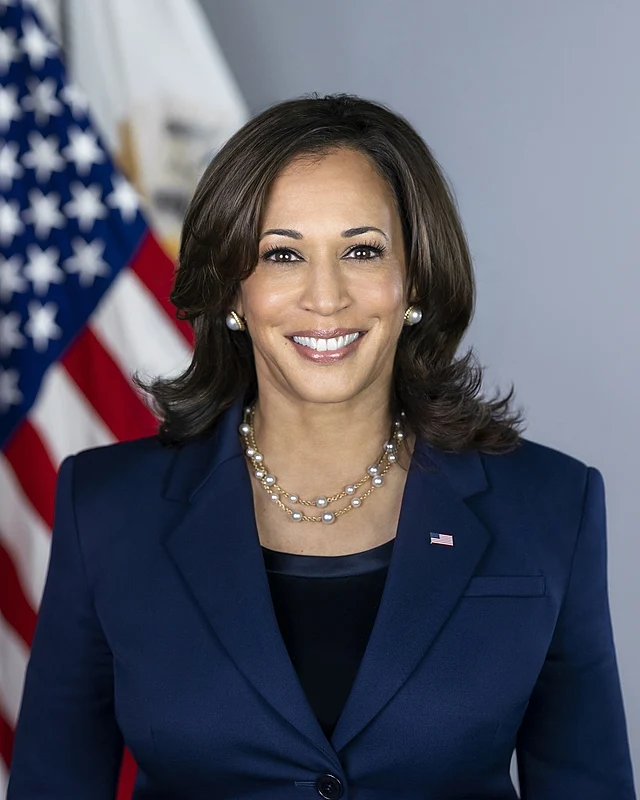In a powerful, impassioned speech at Howard University, Vice President Kamala Harris conceded the 2024 presidential election to Donald Trump after her 107- day campaign ended in a devastating loss. Yet as she spoke, her words felt less like a farewell than a launch. She did not lay blame, question the results or point fingers. Instead, her speech was a rallying cry for a movement, perhaps even a glimpse into the platform she’ll build toward 2028.
Her message of hope went far beyond acknowledging defeat, signalling instead her ongoing commitment to the issues that matter to her and to millions of Americans. In many ways, this was the opening note of what may be Harris’s next campaign, an invitation to her supporters to stay mobilised and ready for the long game.
In her concession, Harris did what few leaders do in a moment of loss: she focused on the future. She pointed not to the end of a campaign, but to a fresh beginning, underscoring the continuity of her mission and that of her supporters. “We will never give up the fight,” she declared, a phrase that resonated not only as a call to action for today, but as a steadfast promise for tomorrow. Through these words, Harris outlined her vision of America as a nation that remains unwavering in its pursuit of justice, freedom, and opportunity for all. This message seemed purpose-built to lay the foundation for another run in 2028, hinting at the core values that will shape her potential return to the national stage.
Harris’s speech emphasised that democracy is not a smooth journey but rather a relentless pursuit of an evolving ideal. Her acknowledgement of defeat was gracious, reflecting the profound belief that democracy’s strength lies in the acceptance of the people’s will, even when the results challenge our expectations. By conceding, Harris demonstrated the grace and respect for democratic norms that citizens expect of their leader. This is in a stark contrast to the contested postures of recent years. As Harris put it, the cornerstone of American democracy lies in a commitment to fair elections, peaceful transfers of power, and loyalty to principles over individuals.
Harris’s speech was rich in the language of resilience, strength, and collective effort. In urging her followers to keep going, she began to forge a future narrative that goes beyond defeat, one centred on unfinished work, challenges yet unmet, and dreams unfulfilled. She didn’t speak merely of what her administration would have done, but instead she emphasised the battles she intends to continue fighting. For her supporters, this was less of an ending than an appeal to remain engaged, to rally behind the causes they all believe in, and to set their sights on the long horizon.
As she addressed reproductive rights, gun safety, and the need to protect fundamental freedoms, Harris laid out a vision. Her focus was unambiguously on the future. She urged Americans to take action “in the voting booth, in the courts, and in the public square”. In this moment, Harris not only reinforced her commitment to democracy but hinted at a more strategic plan. That of a movement grounded in active participation, mobilisation, and relentless advocacy that could lay the groundwork for a formidable campaign four years from now.
The significance of Harris’s words goes beyond political discourse. Her call for unity and collective effort underscores the urgency of today’s societal challenges. America is at a crossroads, facing polarised divides on issues that affect every citizen. From climate change and economic inequality to the protection of fundamental freedoms, Harris urged her audience to “organise, mobilise, and stay engaged.” This is a reminder that democracy demands participation, not only in the voting booth but also in daily acts of kindness, engagement, and solidarity. It calls on each of us to see beyond differences and work together to uplift our communities.
Even her words to the younger generation took on a new significance. Harris reminded them that progress requires resilience, that losses do not signify the end, and that their voices will shape America’s future. This message felt like a preparation, a call to her next generation of voters to stay engaged and to trust in a leader who will champion their causes. When she said, “Only when it is dark enough can you see the stars,” it wasn’t just a poetic line; it was a rallying cry for a political comeback, an invitation to see her as a leader who will stand firm and keep the lights of hope burning even in dark times.
There is no doubt Harris’s speech showcased her ability to inspire in times of disappointment. Harris’s closing words to “fill the sky with the light of a brilliant billion of stars” echoed the timeless call for hope and optimism that may very well serve as the guiding light of her next campaign. The significance of Harris’s message goes beyond this one election. She is asking Americans to see her as a consistent champion for progress, someone who is committed to standing up for what’s right even when the odds are long. This moment feels like a recalibration, a preparation for the road ahead, and perhaps a promise that her vision for America will be as enduring as her resolve.
As Harris embarks on this new phase, her message to Americans is clear: the work continues. If this speech serves as a harbinger for her next campaign, she has undoubtedly already begun laying the foundation for a powerful return. With grace, resilience, and an unyielding belief in democracy’s potential, Harris has offered a vision for 2028 that promises a brighter, more just America. Her supporters would be wise to heed her call to “roll up our sleeves,” for it may very well be a preview of the work to come. While this current chapter in American politics may have closed in a nightmare, the book of the democratic dream is far from finished. Harris will continue to write this book and the American people should not give up on the future that she promises.







